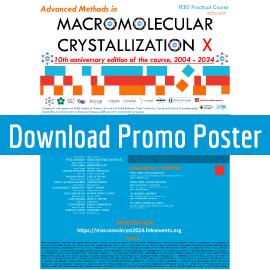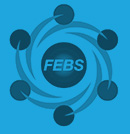
Introduction
The practical crystallization course is in fact the 10th run of the FEBS practical courses “Advanced methods in macromolecular crystallization“, organized since 2004. The planned course (for undergraduate, postgraduate students and postdocs with an interest in macromolecular crystallization) is rather different from the established courses in protein crystallization. The course is designed to bring over the message of the benefits of more rational approaches to macromolecular crystallization and is aimed at a healthy mixture of advanced theoretical discussions and laboratory experiments. To achieve this goal, we have invited a number of prominent experts in the field as a teachers and tutors.The course is designed to bring over the message of the benefits of more rational approaches to macromolecular crystallization. It consists of theoretical lectures, seminars as well as practical work and demonstrations (lectures 40%, practical work 50%, discussions 10%). For crystallization experiments, typical recipes using commercial proteins will be used. In addition, students can bring their own proteins and carry out crystallization trials on these during the course.
A poster section is planned in order to encourage participants to present their own work.
The course will be held at the Faculty of Science, University of South Bohemia Ceske Budejovice (http://www.prf.jcu.cz/en/documents/faculty-of-science.html) in hystorical town Ceske Budejovice located in southern Czechia (https://www.budejce.cz/en/)
Subjects of the practical exercises within the course:
- Conventional techniques and their modifications, crystallization of own proteins using commercial screening kits - using standard crystallization techniques, modification of conventional techniques, using oil, commercial screens (material: commercially available proteins + students’ own proteins)
- Crystallization of membrane proteins in lipidic mesophases
- Microfluidic system – crystallization in nanovolumes
- Automates for crystallization – crystallization robot demonstration, microbatch method, "Random" Microseeding
- Dynamic light scattering – introduction to the technique and demonstration
- Protein crystallization using the GCB - GAME and other methods using capillaries, preparation a large and small diameter capillary counter diffusion for neutron diffraction
- Observation of crystal growth / Seeding – check of crystallization set-ups, application of seeding techniques to improve crystal quality
- The secret life of your crystallization drop
- Trace Fluorescent Labelling for Protein Crystallization Screening
- Evaluation of crystallization trials with the UVEX microscope
- Practical considerations for the crystallization of protein-nucleic acid complexes
- Crystal mounting and freezing – crystal mounting using capillaries, mounting to nylon loops and freezing in liquid nitrogen, crystal storage and transport
- Practical crystallography – how to perform a diffraction experiment?
- Single-particle cryo-EM
- Intracellular protein crystallization
- Crystals for XFEL
Ivana Kuta Smatanova, Pavlina Rezacova, Jeroen R. Mesters and Jose A. Gavira Gallardo
Course Organizers
Deadlines
- Applications Opening
1 January 2024 - Youth Travel Fund Grants
26 April 2024 - Applications closing
26 April 2024






